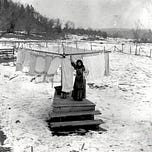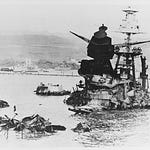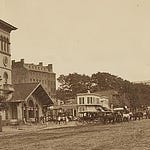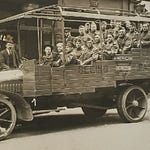the sickness
Andrei Sakharov’s break with his government began in 1961, when the Soviets detonated “Tsar Bomba,” the most powerful nuclear weapon in history.
At the time, he was forty years old and had been at the forefront of the Soviet Union’s nuclear weapons program for thirteen years.
It was Sakharaov who had developed the model for controlled nuclear fusion which had made the Soviet hydrogen bomb work.
And he had believed in this effort.
Sakharov explains:
“If the Soviet Union could achieve nuclear parity with the US, then a peaceful international equilibrium would be created.”
But, over time, Sakharov’s illusions fell away.
Rapid nuclear proliferation among nations alarmed him and his pioneering development work made him feel partially responsible for the danger.
Sakharov also grew angry over the repeated and scientifically unnecessary atmospheric testing of nuclear weapons, fearing the health hazard these tests caused by dispersing radioactive fallout.
He began writing letters of concern to Soviet leaders and publishing scientific papers describing these health hazards.
A last straw came in August 1968, when the Soviet Union sent 200,000 troops and 5,000 tanks into Czechoslovakia to crush the “Prague Spring,” that brief, hopeful period of liberalization in the Soviet satellite country.
Sakharov reacted with expansive public criticism of the Soviet government.
In a lengthy essay smuggled out of the Soviet Union and printed in the New York Times, he assailed his nation’s policies, advocating instead a "democratic, pluralistic society free of intolerance and dogmatism…”
Sakharov called for cooperation with the US; an end to the nuclear arms race; an end to human rights abuses; and the expansion of civil liberties for people in the Soviet bloc.
It was a stunning statement coming from a man who had received the Hero of the Soviet Union award three times.
From Sakharov’s essay:
“An extreme reflection of the dangers confronting modern social development is the growth of racism, nationalism and militarism,
“…and, in particular, the rise of demagogic, hypocritical and monstrously cruel dictatorial police regimes...
“These tragic developments have always derived from the struggle of egotistical and group interests,
“…the struggle for unlimited power, suppression of intellectual freedom,
“…[and the] spread of intellectually simplified, narrow-minded mass myths (the myth of race, of land and blood, the myth about the Jewish danger, anti-intellectualism…)”
Sakharov died amidst the struggle to change his country.
In the decades which followed, Russian dissent has been crushed and its leaders have been killed.
The forces Sakharov warned against so long ago swirl across the US.
The desire for a totalitarian strongman is a latent virus which lurks in weak parts of the body politic, waiting for a moment of societal weakness to strengthen, dominate and control.
The stronger this virus becomes, the more difficult it is to eradicate.
So, don’t make the mistake of thinking it can’t happen here.
Look around.
It’s later than you think.
******************************
I’ll see you tomorrow.
— Brenda
Banner image: student protesters stand atop a Soviet tank, Prague, Czechoslovakia, 1968.






















